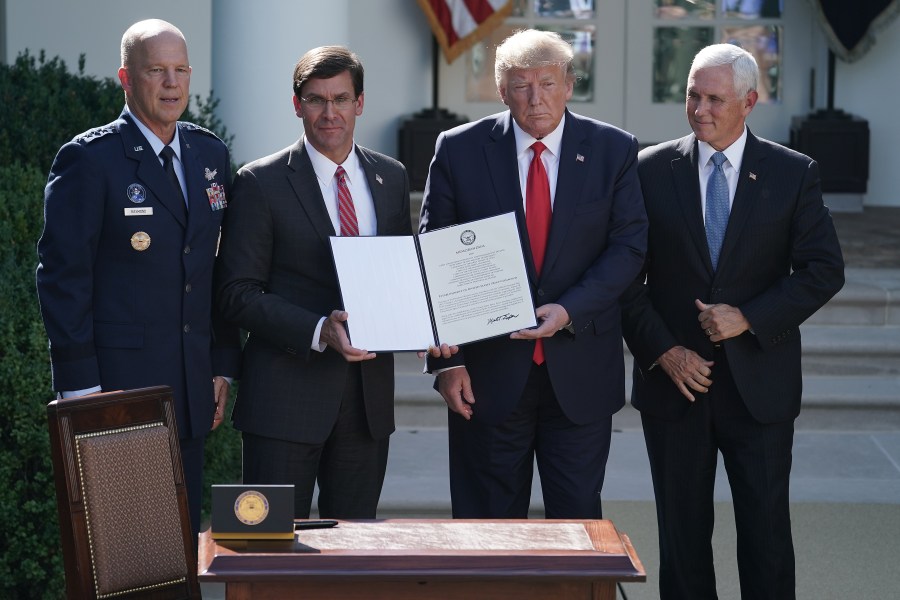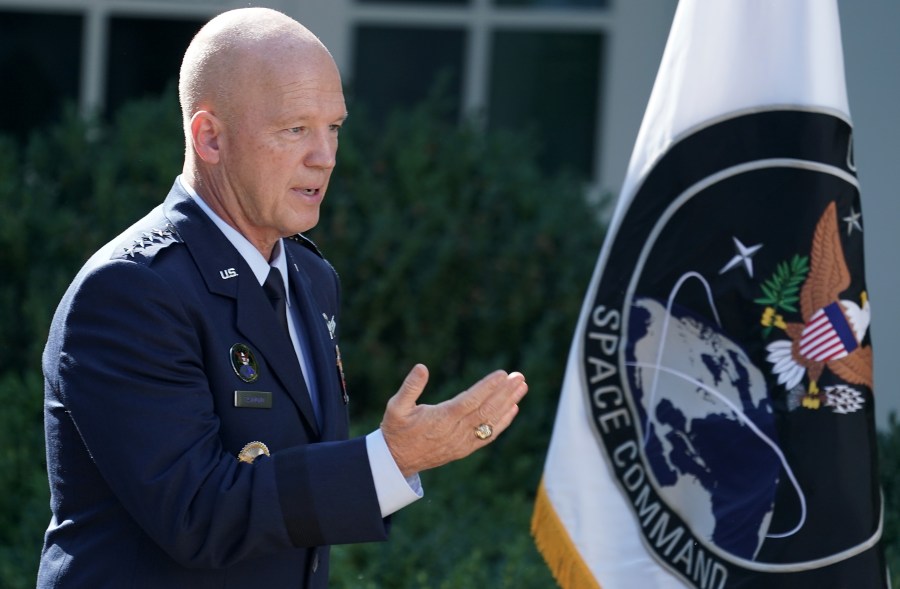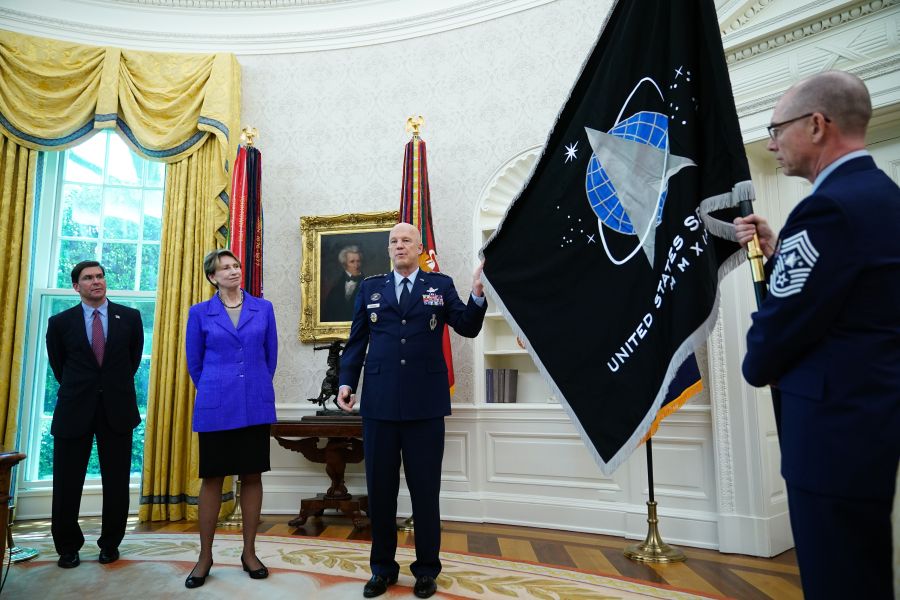One-on-one interview with US Space Force Commander
WASHINGTON (NewsNation Now) — General John “Jay” Raymond is the first-ever Chief of Space Operations for the U.S. Space Force, the first new branch of the military since the Air Force was formed in 1947.
He sat down with NewsNation for an extensive interview, his first major television appearance, to discuss what the Space Force does, common misperceptions in pop-culture about the newest branch of the Armed Service, and about the politics surrounding its creation.
Joe Khalil: What is the function of Space Force?
Raymond: Space is absolutely critical to our nation. It fuels our American way of life. It fuels our American way of war. It fuels our economy. And the Space Force mission is to make sure we can protect and defend that domain.
Khalil: You think people even have an understanding, the average American, of how much critical infrastructure we have in space?
Raymond: It’s hard to understand, it’s really hard to understand. Army, Navy, Air Force, Marines. There’s no other Armed Service that is relied on by Americans every single day like the United States Space Force.
From the moment we wake up and check our phones, browse for news, GPS to an appointment and fill up gas, most of us unknowingly rely on connections beamed down from satellites in space.
It’s become critical to our everyday lives, and to public safety.
General Raymond said it needs protecting.
“Just think what it would be like today if an ambulance couldn’t find their way to an address they were responding to. Just think if first responders were delayed. All of that is provided by capabilities from space,” he said.
Our job is to make sure that when Americans access Space, that it is always there. And what I would say today is that’s not a given. There are threats out there.
Gen. John “Jay” Raymond
Raymond specifically referenced threats from China and Russia. He said while the U.S. space capabilities are the most advanced in the world, our adversaries are catching up, and he said now they’re weaponizing space.
In July, the State Department said Russia fired a projectile into space: an antisatellite weapon.
Khalil: That’s the first time that’s happened in recorded human history. How concerning is that?
Raymond: It’s really concerning. That’s just one example, there’s a long spectrum of threats we’re concerned about.
Khalil: Have we advanced technologically to the point now where you see the future of global warfare, in space?
Raymond: Well our job is to make sure that doesn’t happen. People ask me ‘what does winning look like in space?’ Winning looks like not having to fight the fight that begins or extends into space.
That mission officially began for General Raymond in December 2019, when the U.S. Space Force formally became its own separate branch of the armed forces.
But Space Force has its roots in the Air Force and has been functional since 1982 as Air Force Space Command.
The new name and logo have taken on a “pop-culture” life of their own-often the punchline of sarcastic jokes, memes and fodder for late night comedians.
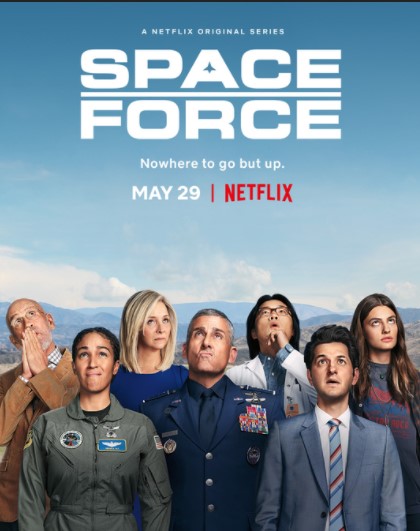
Khalil: Do you think the perception from the outside of this branch is accurate? Do you think it’s problematic?
Raymond: First of all, as I’ve said I think it is hard to understand. You can’t see it. It’s not tangible. You’re not living in that domain unless you’re a NASA astronaut.
Khalil: But it’s one thing to not understand how a satellite works. It’s quite another thing to be the subject of satire. You’ve got a Netflix series, Space Force.
Raymond: How cool is that?
Khalil: You got these memes and images on the internet of what space force is. How do you view that when you come across those kinds of things?
Raymond: It shows the interest that there is across our nation in space. It shows the excitement about space.
Khalil: You don’t think it undermines what you’re trying to do here?
Raymond: I know what we’re trying to do here. People talk about a space war. There’s no space war, there’s just war. Countries might choose to fight that war on land, fight that on the sea, they might choose to fight that in cyber. Now what we’ve seen is that space has become that domain. Our goal is to deter that from happening. The best way we know how to deter that is to do so from a position of strength.
Khalil: How much credit does the Trump administration get for facilitating the creation of this branch?Raymond: As I look back over the signing, since the signing of the National Defense Authorization Act there’s been broad support of this. I think the administration gets a lot of credit. I appreciate their leadership and support. Congress gets a lot of credit as well. They drafted the National Defense Authorization Act that provides us great advantage. It says start with a clean sheet of paper. Develop a force that’s purpose-built for this domain.
Khalil: There are some that see this as part of a sort of Trump Administration vanity project. Do you agree with that assessment?
Raymond: This is critical to our national security. I cannot stress that enough. The average American needs to understand, and it’s hard to understand, how reliant they are on space. And they have to understand that there is a growing threat that the scope, scale and complexity of is very concerning.
Some of the “vanity” criticism of Space Force came from members of the military, veterans, academics, Hollywood and some lawmakers have been leveled at the new branch’s name and its signature logo, which, when released, even drew comparisons to the TV show “Star Trek.”
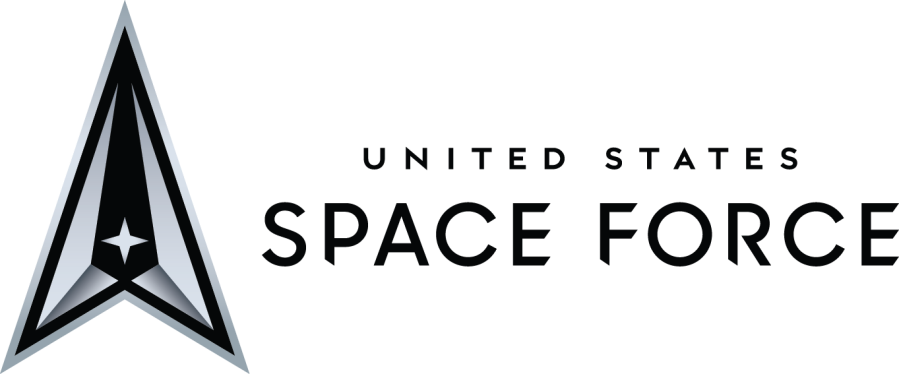
Khalil: Where did the name Space Force come from?
Raymond: Well, you know, the law was passed, the National Defense Authorization Act, that’s our birth certificate. And the name that was on that birth certificate was Space Force.
Khalil: So from the administration?
Raymond: Well there was years’ worth of conversation. This has been debated for a couple years, I don’t know where it specifically came from. But what I can tell you is it’s on our birth certificate.
Khalil: OK, and I know you got a lot of questions about the logo. Can you talk to me about the symbolism on the logo?
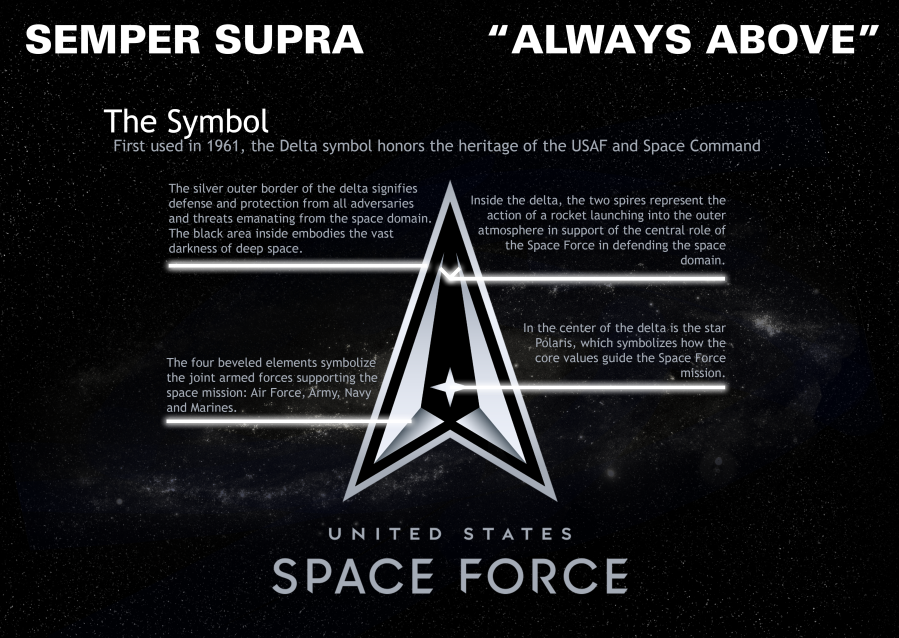
Raymond: Absolutely. The predominant symbol is the delta. That delta has been the symbol of Air Force Space Command for years. We’ve been using that since 1982 and it’s been long used before that back to the 50s. So that delta is our symbol, it’s on our official seal. It’s on our flag. It’s on our logo. And we’re proud of it.
Khalil: Was the creation of this politicized in any way?
Raymond: I’m not a politician at all, I’m focused on my job. I focus on coming to work every day.
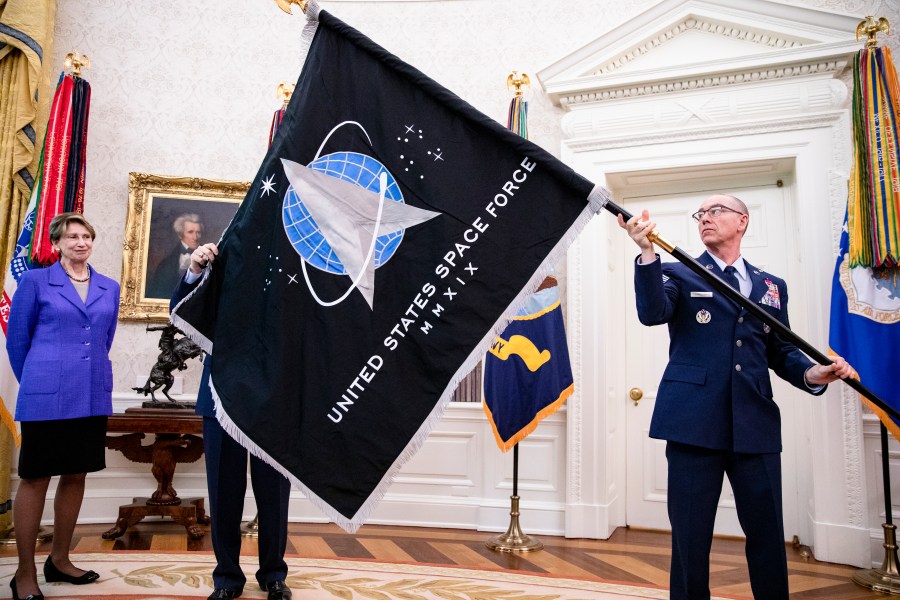
The general repeatedly reminded NewsNation he was not a politician throughout the interview.
Over the summer however, he did weigh in on a controversial issue that dominated American discourse:
The killing of George Floyd at the hands of a Minneapolis police officer.
Khalil: After the George Floyd killing, you said publicly that racism is an enemy, it’s an enemy we must defeat. And then you said, ‘As members of the United States Space Force, we are not immune.’ Is that going to be a priority to make sure that, as you put it, you have a clean slate and you can establish a branch that from its foundation is going to be more equitable?
Raymond: Well I think we have an opportunity. I think, as I mentioned, we have a lot of talent that’s come knocking on our door. We want to get the right people in the right place, in the right job. So far, we haven’t had any problem in doing that. I think diversity is our strength, for sure, it is a strength. And we want to have a diverse makeup.”
Khalil: General, there’s been criticism that by virtue of having a Space Force at all, we’re creating a new arms race in a fashion very different from what we’ve seen historically. Do you think that criticism is fair?
Raymond: I don’t. I do think you have to look at our competitors. If you look at what they’re doing, they’re doing two things. They’re building space capabilities for their own use, to have that same advantage we enjoy. But the second thing they’re doing is they’re weaponizing space.
Khalil: In terms of our adversaries’ capabilities in space, how do they compare with what we have here?
Raymond: Well we’re the best in the world at space, however, our adversaries are moving fast, specifically Russia and China. That superiority margin that we have has been eroding. And so this is why U.S. Space Command and U.S. Space Force is so important to stay ahead of that and to remain the best in the world, so Americans will always have the space capabilities they need.
But Laura Grego, a senior scientist with the organization Union of Concerned Scientists has raised alarm bells about Space Force.
“My argument is whether this is the right tool for the job, whether it might make the problem worse rather than better,” Grego said.
If the goal is a safe, secure space for American satellites, international cooperation and diplomacy are the means to get there, Grego said.
Grego: If the United States leads the way with weapons, and we don’t have a commensurate effort to try to curb them then we end up in an environment of unconstrained weaponization.
Khalil: Isn’t that already happening? Isn’t the weaponization of space a reality we’re in now?
Grego: Whether it’s been weaponized, that’s been arguable over the last few years. There’s been remarkable restraint over the last few decades. When it was the U.S. and Soviet Union they really declined to go in that direction.
Some within the military, even at its highest levels expressed concerns about making Space Force its own branch.
At a time when we are trying to integrate the Department’s joint warfighting functions, I do not wish to add a separate service that would likely present a narrower and even parochial approach to space operations.
Former Defense Secretary Jim Mattis
Khalil: That was then-Defense Secretary Jim Mattis who said that in 2017. What do you make of that.
Raymond: I think space is absolutely critical to any joint war fighting concept that we develop. I think every combatant command that we have across our nation understands that importance. All of our services understand that.
General Raymond says American adversaries have already demonstrated real threats to American satellites.
“It’s so important for this force that’s dedicated to making sure that we can protect and defend these capabilities from any threat,” he said.






